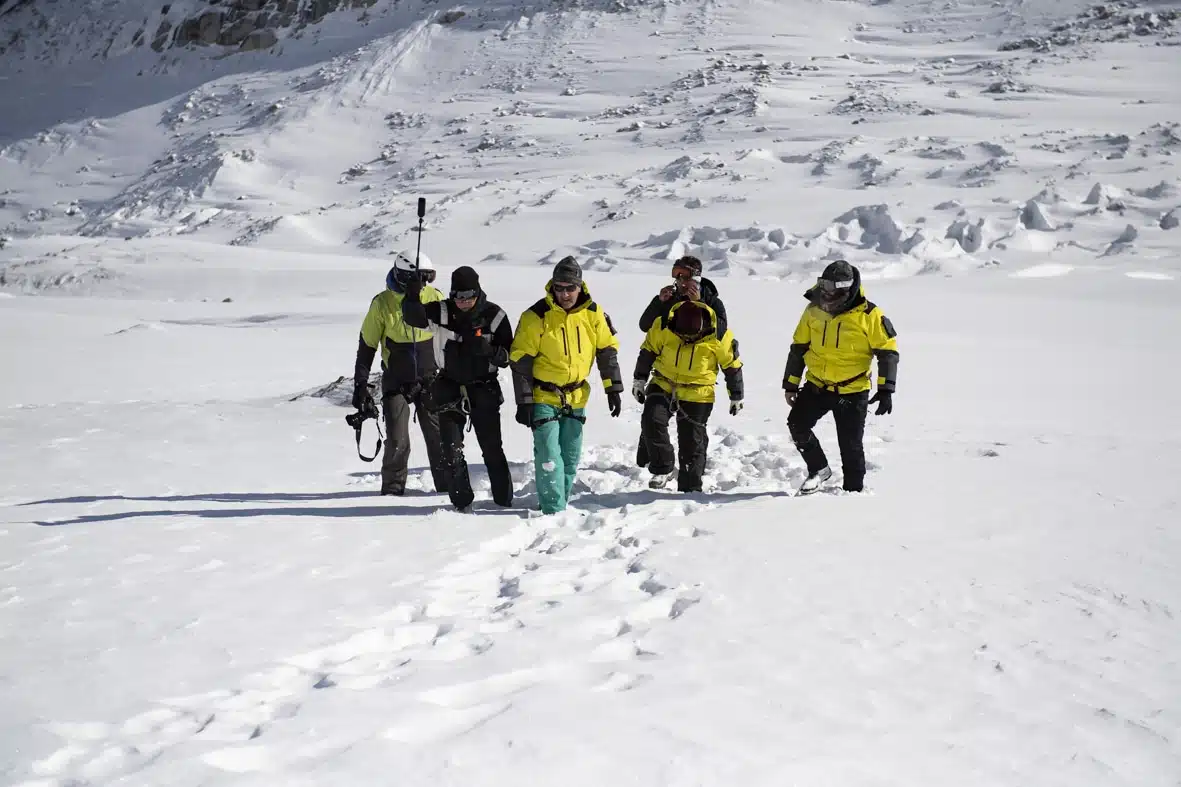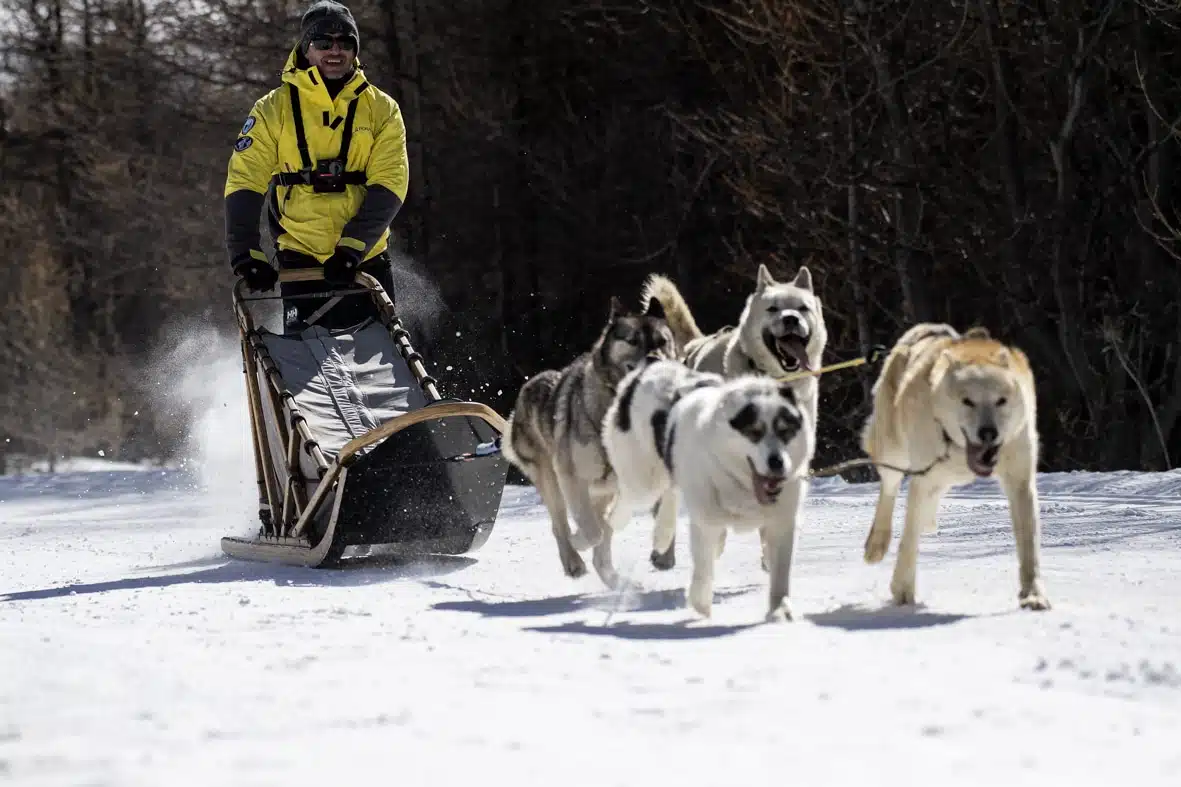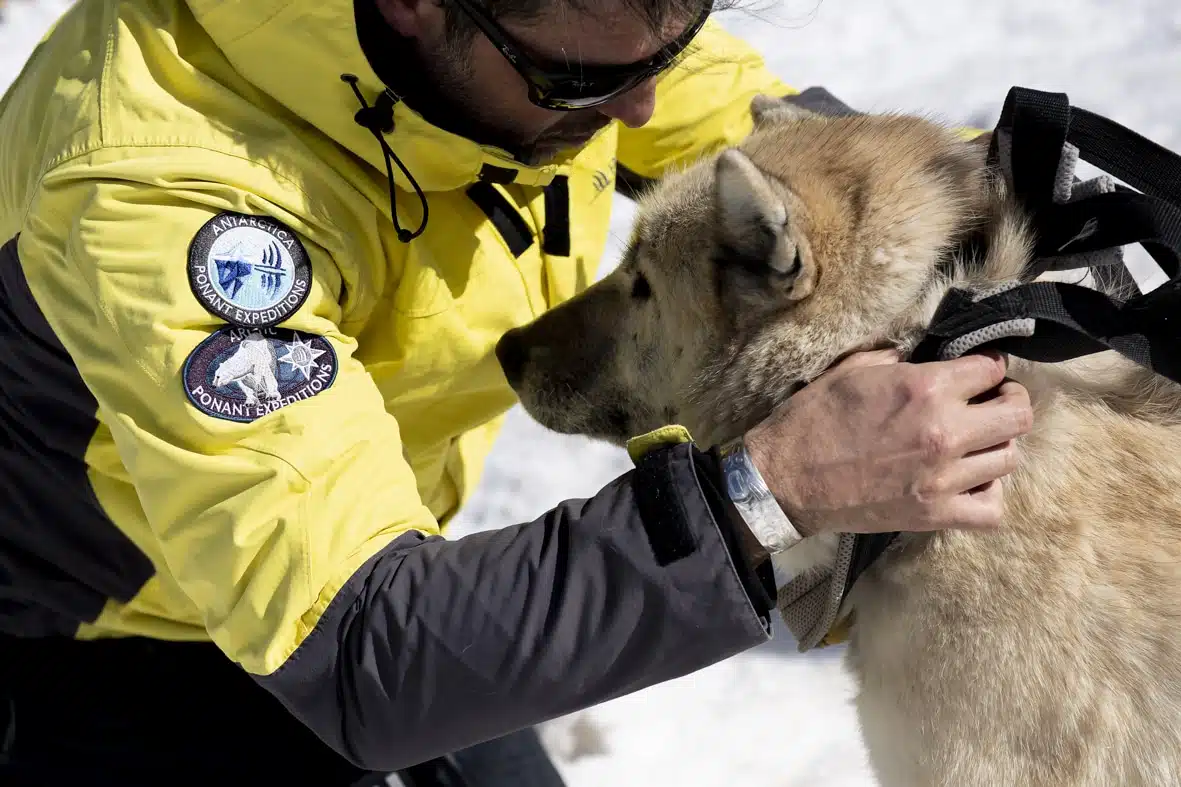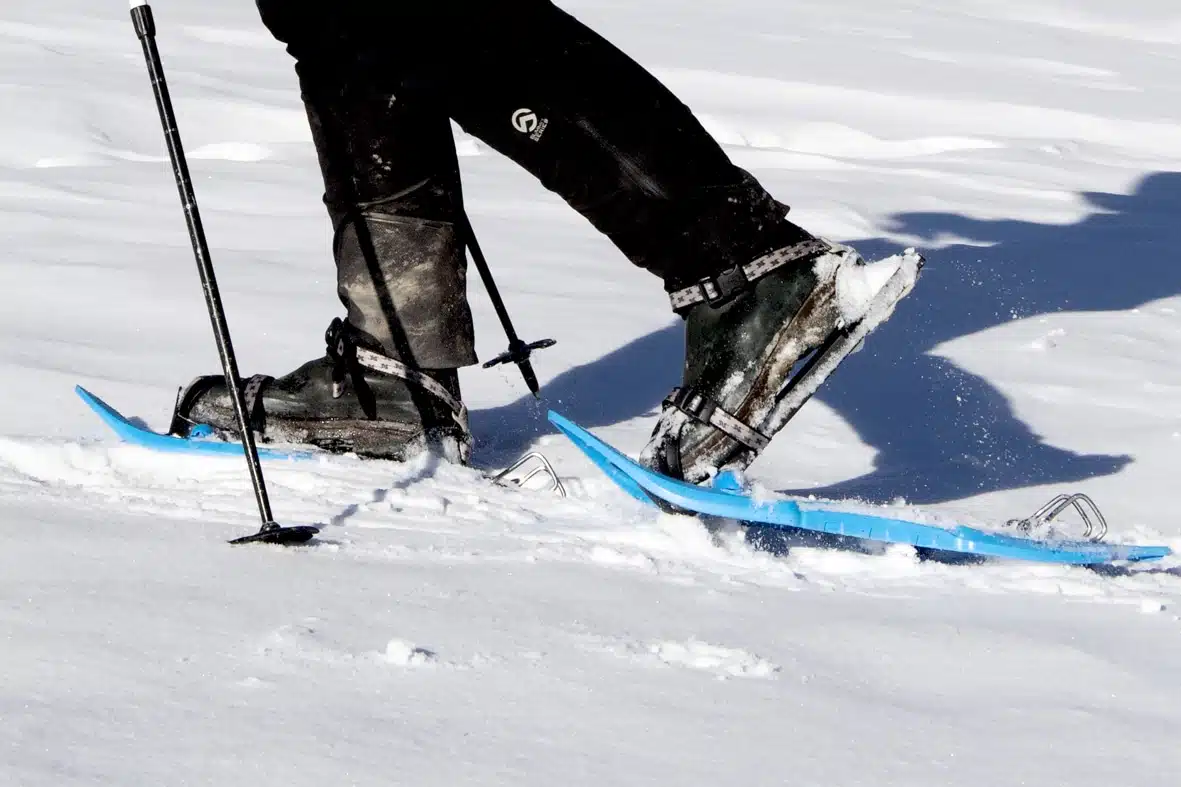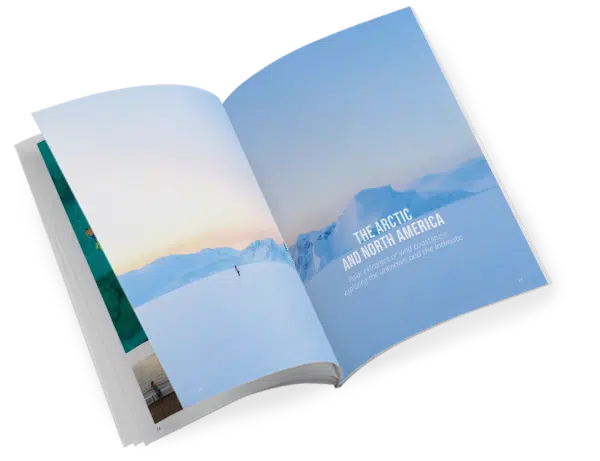Full-scale field tests
The PONANT fleet has a new addition to its ranks: Le Commandant Charcot, a hybrid polar exploration vessel capable of taking its passengers to the farthest reaches of both Poles to explore previously inaccessible areas. New adventures are on the horizon, but, for the expedition leaders, with great adventure comes great responsibility. That is why they went on a “reconnaissance” trip, spending a week immersed in the French Alps to prepare for these unprecedented experiences in the best possible manner.
Expedition leaders on assignment
During a PONANT cruise, the expedition leaders are responsible for the safety of the passengers when they are not on board the ship. As such, each of them is involved in developing the best itineraries and supervises their team of naturalist guides, including geographers, botanists, historians, ethnographers, ornithologists and marine biologists. Access to all these scientists is a unique benefit of PONANT expedition cruises. They are responsible for ensuring that Zodiac excursions and landings run smoothly, whether they involve meeting local populations or discovering flora and fauna. These excursions are regulated by strict protocols to preserve the environment, and provide many opportunities to raise passengers’ awareness of the precious and fragile natural world they are about to explore.
As you will have gathered, a polar expedition requires careful preparation. “People who go on a PONANT cruise should know that we started planning it at least two years in advance so they can enjoy a dream trip”, says José Sarica, Expedition Director. Experience in the field is a fundamental stage of the planning process. The aim is to try out new activities to see if they are feasible and identify any constraints in order to be able to guarantee the safety of our passengers and enable them to experience a polar adventure to the full.
Tailored training: bodies tested, senses awakened
The expedition leaders were pushed to their limits over the course of the week. Supervised by experts including high and mid-mountain guides, pilots, mushers and more, they followed a demanding programme, combining high-intensity physical training, activity testing and ongoing safety challenges. Nothing was left to chance.
Safety as a priority
Getting out of a helicopter on the Tacul glacier in the heart of the Vallée Blanche, riding up the steep slopes of the mythical Izoard Pass (2,360 m) on an electric mountain bike, and snowmobiling through the powder, on black ice, in the forest and over moguls: the expedition leaders were in the Alps to make such skills second nature in order to move around safely with passengers in the polar environment. In practical terms, this means they are able to rope themselves together, secure their footing, move forward in unison, keep the ropes taut, synchronise the pace, spot cracks, identify an avalanche risk, use an avalanche victim detector, and more. It also means they are capable of carrying out scouting and logistics operations, mainly using snowmobiles. Leaders must be able to manoeuvre these powerful and responsive 350 kg machines on and off tracks. There will be a helicopter pilot on board Le Commandant Charcot at all times, who is experienced in the specific constraints associated with the Arctic and Antarctic regions. They may have to intervene in reconnaissance operations or unload equipment on the ice.
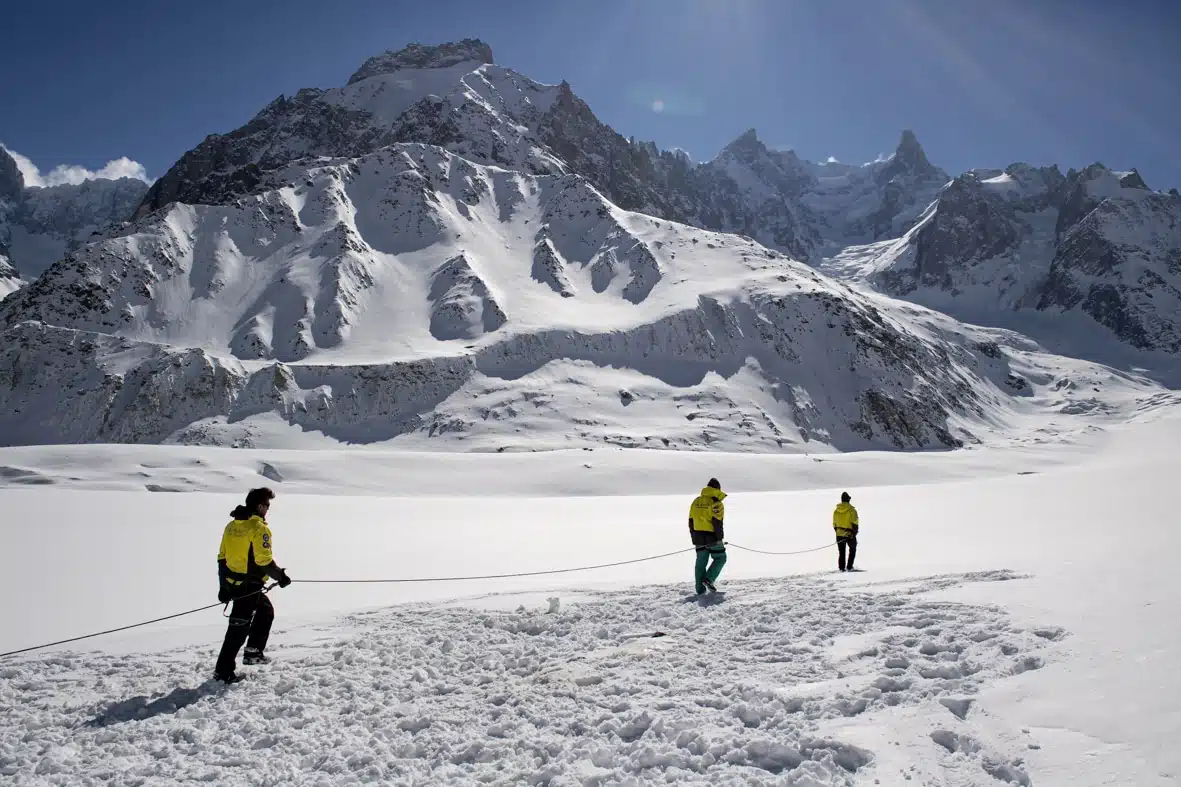
Better sharing through experience
Once the safety procedures have been mastered and the activities have been tested and approved, another mission begins for the expedition leaders: sharing their passion and conveying their emotions. “Teams are not asked to become specialists in each activity”, says José Sarica. “However, we only truly understand what we have directly experienced. We are all the more credible when speaking from experience.” Although the field operation in the Queyras had a physical and safety focus, it also proved essential in enabling the expedition leaders to gain an overview of each activity and so be able to “share” them with the passengers of Le Commandant Charcot. The activities on the agenda will be “different from those we offer on other ships,” says José Sarica. “Nature-oriented activities, [which] make you feel like an explorer.”
Silence and a feeling of completeness in the heart of the mountains
During a snowshoe outing along the wild mid-mountain trails, the expedition leaders were able to enjoy the peace and quiet of the endless panoramic views of the snowy mountains and valleys. Splendour on a vast scale! The intense silence of the mountain, barely pierced by the sound of chirping birds and the squeak of snowshoes on the ground, makes you feel very small. It speaks volumes about nature’s omnipotence. The leaders will be able to remember this when snowshoeing across the polar regions, precious sanctuaries whose balance we must preserve.
The call of the Far North
The expedition leaders then went sledding, following in the footsteps of the first peoples of the Arctic. John Perrolaz, who has worked as a musher in the Queyras since 2008, accompanied them. This provided an opportunity to reconnect with an ancestral practice without which the conquest of the Far North would have been impossible. And an exciting lesson in history… and humility. Because this relationship between humans and animals is an important step in the quest for self-discovery. “Dogs force us to reconnect with nature,” says John Perrolaz. “They put us back in our place as human beings. It is not about controlling everything but about living alongside the rest of nature and cultivating our ability to bring species together. Dogs remind us who we are.” Passengers of Le Commandant Charcot will benefit from a rewarding and redeeming return to their roots during an exceptional sled ride over the vast expanses of the Arctic, led by a Greenlandic musher.
Meditation and mindfulness
Another activity that provides an opportunity to connect with the surrounding nature will be a rather chilly ice bath at temperatures between -0.5 °C and 4°C. Ideal for getting your head straight! This activity is to be “carried out mindfully”, says José Sarica, and requires some preparation, involving cold showers and active cycles of breathing. “You have to do it little by little, listening to your body,” explains Luc Arnera, a ski instructor and a follower of Dutch world record holder Wim Hof, who has learned to control the physiological effects of the cold. But it has amazing benefits for the body and senses. “You enter a meditative state!” If not, there is another less “refreshing” option that should be just as memorable: polar diving in an immersion suit, a type of flexible, waterproof dry suit that protects you from the icy water. Only your face remains uncovered. Picture this: your head is held out of the water by a rigid pillow as you float quietly on your back, protected from the cold, in the middle of an ice-covered landscape. It seems unreal!
When imagination becomes reality…
…during an ice fishing trip. To prepare for this unique and unusual activity, the expedition leaders went to the frozen waters of Lac de Roue at an altitude of 1,850 metres. There, they learned how to drill into the ice using an auger to release the “trapped” water and then skim the impurities off the surface. All that was left was to cast a hook attached to a fishing wire. This practice is prohibited in France, so they had to rely on their imagination; but soon Le Commandant Charcot will take teams and passengers to the icy regions of the Arctic where, at -5°C, like the Inuit, they will be able to drill their own hole in the ice and wait patiently, lulled by the immense silence, for fish to take the bait. It should delight both fishing enthusiasts and people hungry for new experiences!
So, it is with a better understanding of snow, ice and the polar regions that the PONANT expedition leaders have returned from their “reconnaissance” mission, ready to give passengers incredible experiences to learn to respect and fully appreciate nature, with awakened senses and consciences.
Photo credit : © Studio PONANT / Nath Michel
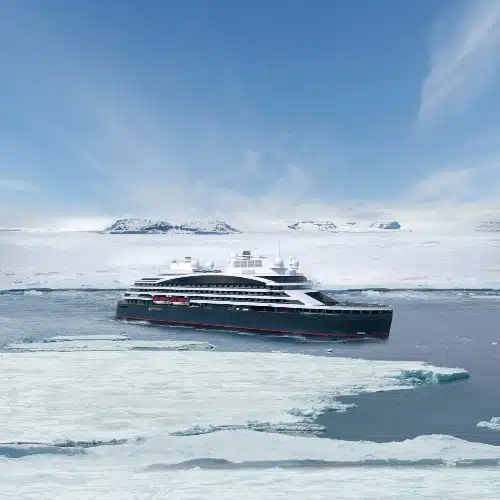
PONANT takes you there
Feel the thrill of adventure with our expedition team on board Le Commandant Charcot

